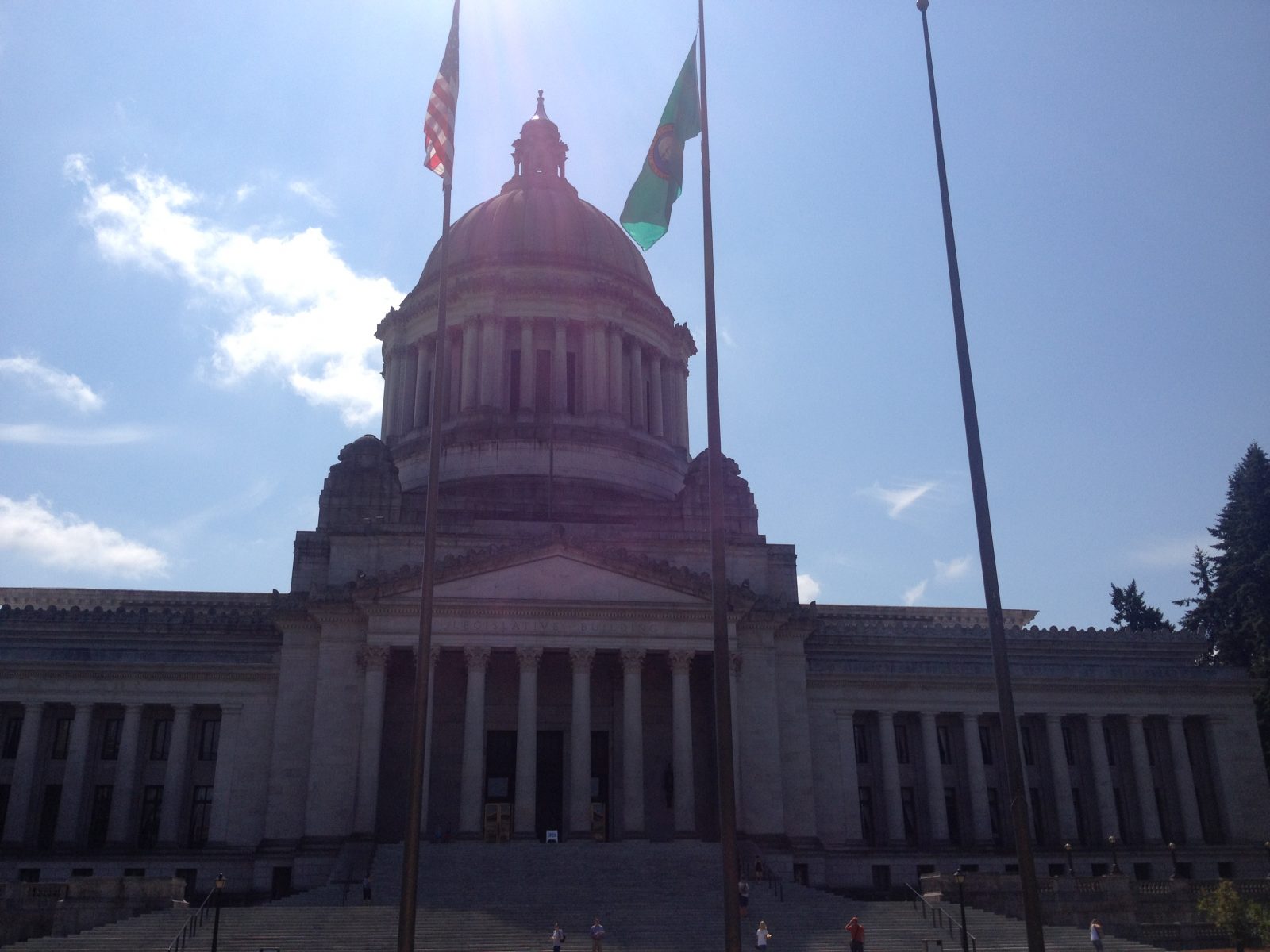In adjourning the 65th legislative session, Washington state legislators left Sound Transit 3 (ST3) funding fully intact. Transit supporters breathed sigh of relief. Pressure they had applied on legislators helped reverse the momentum on what seemed like a sure-thing bill early in the session.
The Urbanist’s readers alone sent 511 letters to legislators asking them to save Sound Transit funding. Our Save ST3 campaign began in January as soon as car tab bills were introduced and continued right up to the end of session. Efforts to defend ST3 united a broad coalition including Seattle Subway, NW Progressive, Seattle Transit Riders Union, Seattle Neighborhood Greenways, The Stranger, Transportation Choices Coalition, and many more.
Throughout the session, legislators on both sides of the aisle had expressed an interest in modifying the car tab formula, which funds ST3 projects and was approved by voters. Republicans were out for blood and wanted to cut ST3 funding by nearly a quarter, taking a hatchet to the car tab formulas. Democrats had various proposals that ranged from cutting more than $2.1 billion in ST3 funding to partially backfilling cuts through other means.
Earlier in the session, Democrats had considered a bill sponsored by Rep. Kristine Reeves (D-Federal Way) to allow payment plans on a half-yearly or quarterly basis for car tabs. Under state law, car tabs must be paid in full at the time of vehicle re-registration. Allowing payment plans, as proposed, would have created a system similar to property tax payments, which can be paid in installments instead of all at once, blunting the sticker shock and spacing the financial burden. Unfortunately, that bill never passed out of the House.
Meanwhile, Senate Democrats had considered several measures in their car tab bill to speed up ST3 projects, protect the integrity of light rail and bus rapid transit project delivery, and partially pay for cuts to car tabs, albeit by taking away funding for homeless youth in the King, Pierce, and Snohomish counties. The House had planned to stick to their guns by saddling ST3 with $780 million in direct funding cuts with longer-term financing costs estimated at $2.1 billion.
Fortunately, House Democrats were thwarted by lack of time remaining on the legislative clock, Democratic holdouts representing Sound Transit areas, and Republicans who think that car tabs are a winning issue in the age of Trump and want to push for even deeper cuts. Spoiler: Republicans lost hard in the 48th Legislative District in November even whiling running on this very issue, which gave Democrats full control of the legislature.
A statement from Rep. Judy Clibborn on the cut to car-tab fees not passing. #waleg pic.twitter.com/8CbyNqJioj
— Walker Orenstein (@walkerorenstein) March 9, 2018
Somewhere in an alternative universe, Washington would have been having a discussion this past session on ways to speed up construction of ST3 projects with backing from the state.
If you’ll recall from 2015, the Washington State Legislature fought over a massive transportation package chalk full of unnecessary sprawl-inducing highway projects like the North-South Expressway in Spokane and completion of the Puget Sound Gateway highway extensions of SR-167 and SR-509. Retiring House Transportation Committee Chair Rep. Judy Clibborn (D-Mercer Island) had a penchant for highway pork during her tenure and made sure those projects made it into the final package. She also worked with Republicans to keep out a referendum proviso in the transportation package since the bill included a large gas tax increase, which was seen as a widely unpopular way to pay for billions of dollars in new highways. In exchange, voters in the Sound Transit taxing district were merely afforded an opportunity to vote on authorizing ST3.
It’s entirely possible the issue of the state legislature trying to raid ST3 funding will creep up again. The political temptation to pander to wealthy car owners and car dealers rather than transit riders will remain. Nonetheless, after uniting to defeat ST3-cutting bills, urbanists and transit advocates come away from this session energized and ready to fight for legislation that speeds up rather than slows down delivery of transit projects and eager to tackle big lifts like a carbon tax. Let’s use Democratic majorities to go forward, not backward.
This isn’t the 1980’s anymore. We’re no longer beholden to the paradigm of suburban sprawl. Welcome to the era of urban vitality. May the transit investments begin!
Thank you to everyone who contacted their legislators to block these ST3 cutting bills. We're really proud of how transit supporters came together. Good work! 👏👏👏 https://t.co/VF9Hqx0ysJ
— The Urbanist (@UrbanistOrg) March 9, 2018
Doug Trumm is publisher of The Urbanist. An Urbanist writer since 2015, he dreams of pedestrian streets, bus lanes, and a mass-timber building spree to end our housing crisis. He graduated from the Evans School of Public Policy and Governance at the University of Washington in 2019. He lives in Seattle's Fremont neighborhood and loves to explore the city by foot and by bike.


